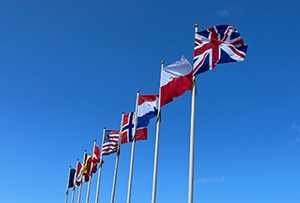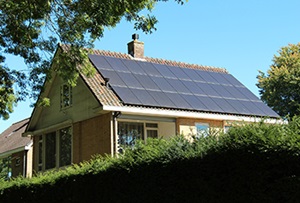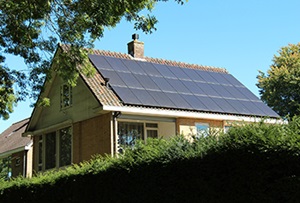The Dutch turnover or value added tax system is based on the European Directive concerning tax on added value. Tax is due the Added Value (VAT or ‘BTW’ in Dutch). This entails that tax is charged at each and every stage of the production chain and in the distribution of goods and services. Businesses charge one another VAT for goods and/or services provided. The company that charges the VAT is required to pay the VAT amount to the tax authorities. If a company is charged VAT by another company, it is entitled to deduct the VAT amount from VAT due on the company’s part. By doing so, the system ensures that the end user is effectively responsible for paying the VAT.
Foreign companies that perform taxed services in the Netherlands are in principle also liable to pay VAT. Those companies, too, will be required to pay the VAT due in the Netherlands and will therefore also be able to claim the VAT invoiced to it by Dutch companies. The VAT system entails strict invoicing rules. The rules are determined by the mandatory EU Directive on VAT Invoicing rules and implemented by EU Member States in their national VAT Law.
Exemptions
Not all goods and services in the Netherlands are subject to VAT. The following services are VAT exempt: medical services, services provided by educational institutions, most banking services, insurance transactions, services performed by sports organizations and property rentals. Companies that provide exempted services are not entitled to charge VAT for their services. In addition, they are also not entitled to claim the VAT charged to them for goods and services. Companies that perform both VAT liable and VAT exempt services will assign VAT to those specific services on which VAT is due.
The VAT system in the internal European market
The European Union has recognized the free traffic of goods, persons, services and capital in the EU. Performances within the European Community are referred to as the intracommunity supply and acquisition of goods and intracommunity services. VAT is charged based on the destination country principle. This means that goods that cross the border to another EU country are taxed in the destination country. For business to business services (B2B). The rule applies that these services are taxed in the country where the customer is established or has a permanent establishment.
Digital services
From 2015 the European VAT rules for digital services (communication, broadcasting and electronic services) have changed. These digital services are now taxed in the country whether the customer is resident. It is not relevant whether or not the customer is (a business) registered for VAT. To facilitate the administration of this, at the same time the ‘mini One Stop Shop scheme’ has been introduced. This scheme offers the business registered for VAT the option to declare the VAT in an EU member state for the digital services provided to customers not registered for VAT.
VAT deferment
The Netherlands has implemented a so-called deferment system. This system offers cash-flow advantages. This system’s benefit involves payment of VAT to be moved from the time of import to when the company declares taxes, usually monthly. The VAT due for the import will be recorded in the declaration as payable, while at the same time, amounts will be subtracted as pre-paid taxes. To obtain this deferment, the importer must apply for a license at the tax department under ‘Article 23.’ To obtain this license the company (importer) has to be registered for VAT in the Netherlands as a domestic entrepreneur or as a foreign entrepreneur with a permanent establishment for VAT in the Netherlands. In addition this company (importer) should have regular imports to the Netherlands and the bookkeeping is subject to meet specific requirements.
Tax rates
The general VAT tax rate is 21%. The Netherlands also has a low VAT rate of 6%. Goods and services falling under the low tax rate are specified in Table 1 of the Turnover Tax Act (Wet op de omzetbelasting 1968). This applies, among other things, to foodstuffs and medicines. The zero rate is mainly intended for goods exported to outside the EU and for goods exported to other EU members states.
All companies are bound to submit VAT declarations. If the company also supplies goods or services to elsewhere in the European Union, it is also bound to fill in the ‘Opgaaf Intracommunautaire Prestaties’ (Intracommunity Supplies) tax form.


